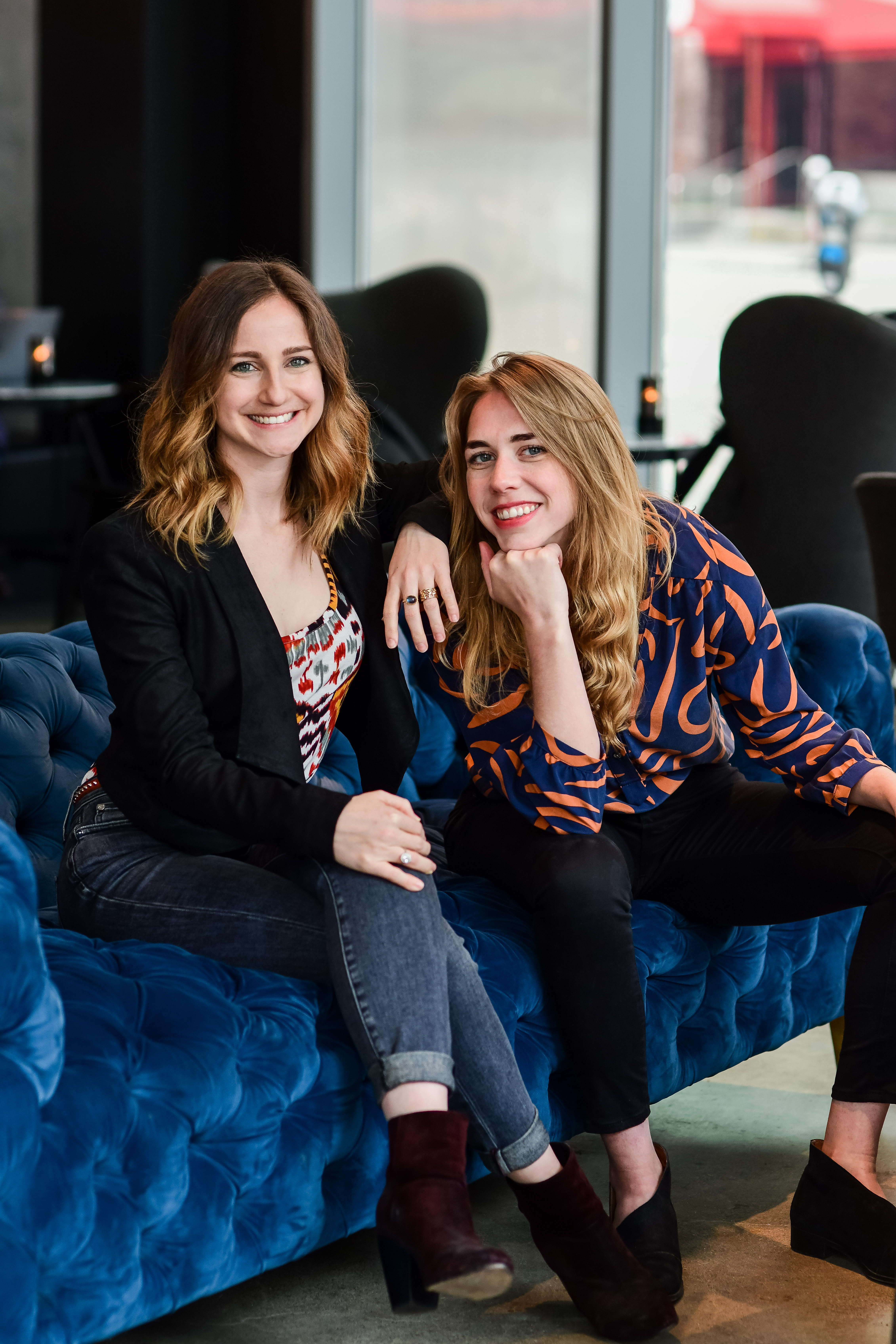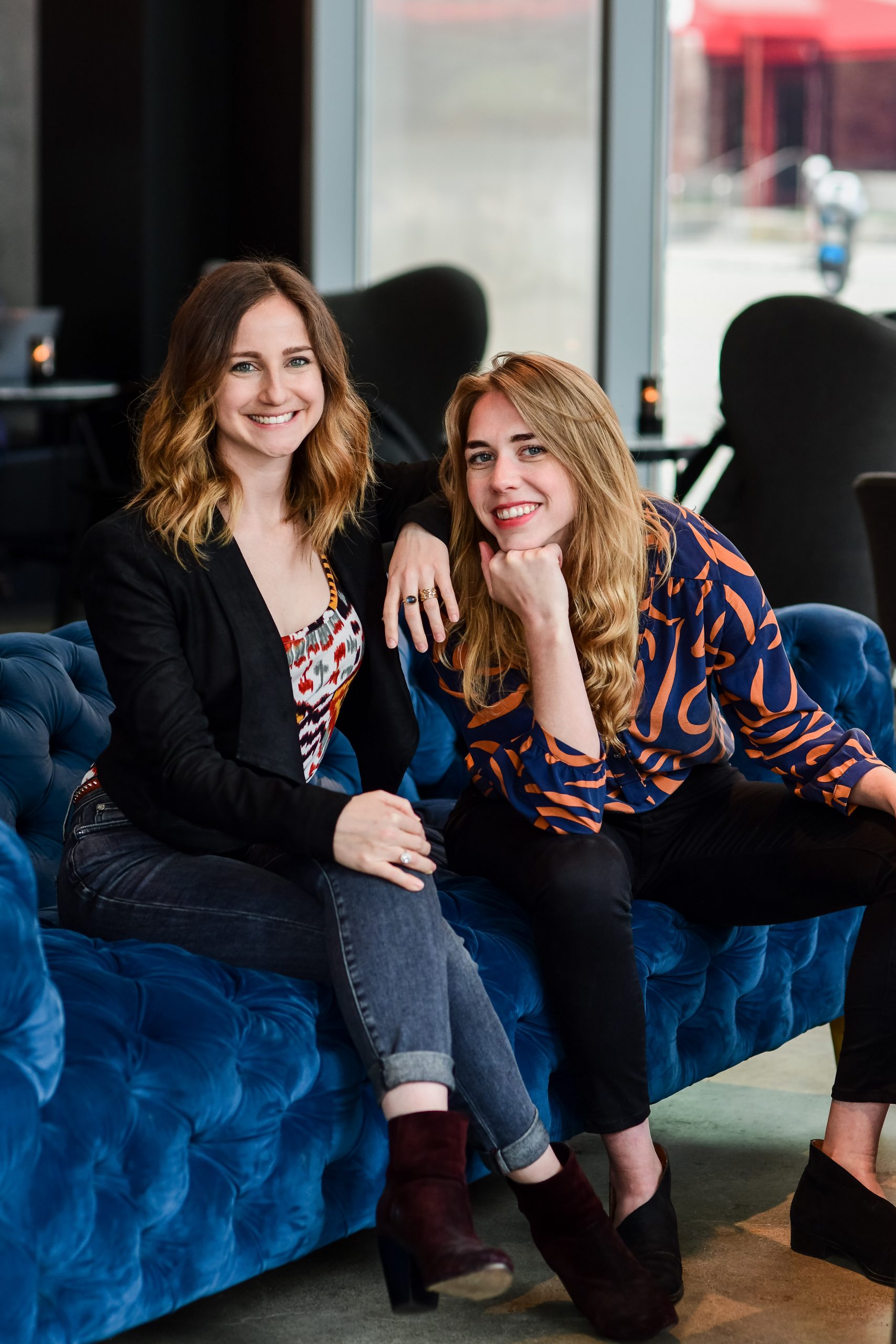When’s the last time you worked out your soul?
A mid-spin pep talk at SoulCycle might make you shed a tear, but not in the way that the co-founders of Coa, Alexa Meyer and Dr. Emily Anhalt, want. The founders, instead, want people to ask themselves: When was the last time you worked out (just) your soul?
If you stutter in response, that’s the impetus for Coa, a gym for mental health and online emotional fitness classes. The company just raised a $3 million seed round led by Crosslink Ventures, with participation from Red Sea Ventures and Alpaca VC. Other investors include Neil Parikh (the founder of Casper) and professional basketball player Kevin Love.
Coa’s core product, pre-launch, is small-group studio classes taught by licensed therapists. A customer will get onboarded, evaluated and placed into a series of classes spanning how to live alone during a pandemic to how to deal with political anxiety.
The class experience mixes lecture-style teaching with breakout sessions to breed conversations. Broadly, Coa is on a mission to take the small-group fitness culture that makes SoulCycle so successful and apply it to mental health. It makes sense: small-group fitness is easy to schedule into your busy days, breeds camaraderie and creates a sense of community that keeps you coming back for more.
Beyond studio classes, Coa sells private classes, 1:1 therapy, and offers free community classes.
Off the bat, the co-founders are clear about what Coa’s studio classes are not: a replacement for therapy. Instead, Coa wants to be a “therapeutic experience,” and the only people who create or teach content are licensed therapists. For 1:1 services, Coa has a therapist matchmaking service, currently only active in California (soon to be New York and other states). Of course, though, the fact that Coa has therapist connector services means that people interested in therapy can turn to the company for a network of options.
Coa’s studio classes seeming have a grey persona to sell to: people who want to pay for their mental health, but not enough to go to therapy. Coa pricing is key here, and drop-in classes start at $25 to bring some of the accessibility to mental health awareness. The startup’s go to market strategy is currently through free community classes and offering subsidized programs for employees by working directly with employers. Coa currently works with companies including Silicon Valley Bank, Spotify, Asana and Salesforce.
“It’s pretty impossible to replace the magic that can happen between two people meeting consistently every single week and diving deep,” Meyer said. “Our problem that we worked on solving is essentially how do you support people and go deep without asking them to go farther than it’s safe to do in a group setting.” The other hurdle, which again trickles down to the eventual core customers that Coa secures, is that the small-group format requires customers to offer up a certain amount of vulnerability during each class.
“We were warned that people do not want to talk about mental health and don’t want anyone to know they’re signing up for a class,” Anhalt told TechCrunch. “We’ve seen the complete opposite with our community.”
Anhalt notes that group therapy does not legally require participants to promise confidentiality, but instead that participants usually follow a shared understanding that privacy is an important asset. Coa follows the same framework, posing a confidentiality agreement upfront. Participants are not required or demanded to share any information beforehand.
“There’s no sort of way to legally mandate people to keep those things private, and so far we have seen that it has not been an issue,” Meyer said.
Privacy, though, continues to be a struggle for therapy startups, as shown by a recent investigation into Talkspace by The New York Times. Talkspace, similar to Coa, has a noble mission: democratize access to mental health and make it more affordable. In Talkspace’s case, the goal was challenged when the company reportedly put the privacy of user conversations at risk.
Coa is optimistic it can make a difference without making an ethical compromise.
“Confidentiality and clinical integrity is everything,” Anhalt said. “So we take measures far beyond what we’re legally and ethically required to do.” Some of those measures: a dedicated person who manages patient to therapist information, no post-therapy surveys or analytics and an internal commitment to not sharing who is participating in which classes.
Coa views its competition broadly as any startup in the therapy space: Talkspace, TwoChairs, Real, Alma and Octave.

Dr. Emily Anhalt and Alexa Meyer, the co-founders of Coa.
Through pop-up gyms, Coa privately offered its emotional fitness curriculum through leaders at Asana, GitHub, Silicon Valley Bank and Spotify. They’re expanding the curriculum to include more demographics at various price points. Right now, they’re sticking to online classes for social distancing purposes. Over 3,500 people have signed up for the Coa waitlist in anticipation.
But the co-founders aren’t shy about the long-term goal: in-person presence in every major city across the country. Think an actual gym for mental health.
“We want the gym for mental health to be visible and accessible,” Meyer said. “That way, when people walk around on the street, they see that there are places to work on their emotional health, the same way they work on their physical health.”
Editor’s note: This story has been edited to further clarify and correct Coa’s core product offerings.


